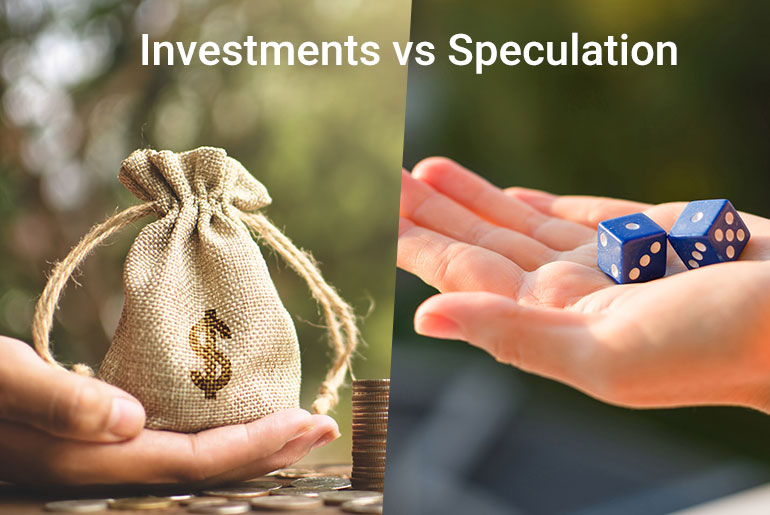The Key Difference between Investing Vs. Speculating In Stocks
Speculators and investors, in general, make up the stock market. You anticipate a return when you invest in a financial product or asset. You expect that you will return all of your investment when you sell the asset. You hope the price of an asset will change in your favor when you speculate on it, but you are also aware that it might not.
The distinction between investing and speculation needs to be clarified in today’s complex financial markets. In addition to comparing the two, this article gives examples of investing, speculating, and the overlap between the two.
What is investing?
When it comes to the financial markets, you invest in assets when you anticipate a return and get your initial investment back, which is defined as “committing cash to obtain a return” by the dictionary. Investments do not necessarily come without danger, although it is thought that the risk will be minimal. Most investments generate cash flows like dividends, rent, interest, or coupons. Profits are occasionally reinvested to raise the asset’s worth, though.
What is speculating?
Spending money in the pursuit of a profit is speculation. Usually, speculation is based on a theory about what will occur. There is no surety, though, and the risk is far greater. For example, people searching for gold during the gold rush were considered speculators. Although they could not know if they would find gold, they were willing to take the chance because the potential return would be far bigger.
In the early years of Wall Street, when most listed companies had a track record, speculation ruled. However, a large number of businesses now have a solid track record. As a result, a lot has changed in investment analysis as well. Now that there is more clarity, investors can purchase certain stocks.
Key Distinction of Speculating Vs. Investing
Benjamin Graham stated in The Intelligent Investor that an investment activity is one that, after careful consideration, guarantees the safety of money and a sufficient return. Operations that don’t adhere to these standards are speculative.
The main distinctions between investing and speculating are the degree of risk and the likelihood of getting your money back. Investors have a good chance of not losing money. On the other hand, speculators know there is a chance they will lose their investment.
Examples of activities that fall under the category of investing or speculating
The following instances straddle the line between investing and speculating:
- Momentum Investing
- Growth companies
- A hedge fund
- actual estate
- funding for venture capital
Examples of activities that almost always fall under the category of investing include:
- escrow accounts
- governmental debt
- Blue chip securities
- Worth stocks
- ETF investment and passive investing
- Platforms for robot advisors
- retiree programs
- A mutual fund
- investing in factors
- funding for private equity
FINAL INSIGHT
The person conducting a financial transaction might also affect the distinction between investing and speculating. Take the case of two investors purchasing identical stock. The first investor might have bought the stock solely on a whim. However, its’ second investor may have chased the stock after conducting extensive research and having a solid investing thesis. While the second investor is investing, the first is speculating. In this instance, the approaches, not the stock itself, make a difference.




